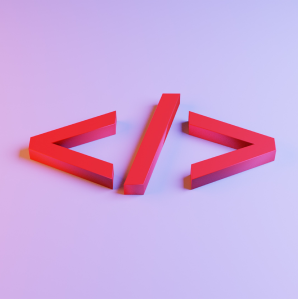About BUFF
Here at Fulcrum we’ve made a daring decision. We wanted to achieve a thing or two:
- be even more transparent;
- create relevant content and engage with enthusiasts;
- give a chance to our future partners to get to know us even before the first virtual handshake.
The way towards all those goals was bright and clear to us. Handing PAMPHLETS on the streets! Of course not, we’re not a family restaurant nor an optician, we do serious business on computers. So we hit the road on the podcast scene, finally putting our mics and phone cameras to a good use.
The first issue is about the story of Buff. Buff is not your regular loyalty program with cards and stamps, it’s a full blown online platform where gamers can “game for fun, earn for real”. We started cooperating with Buff around two and a half years ago.
Everything started small, but ambitiously vicious and became something big and beautiful over time. We’ve started with a desktop only application that allowed gamers to win rewards just by playing, soon after a mobile version was created. Buff became a cross-game, cross-platform virtual economy where gamers are able to earn coins and spend them on the desired in-game items.
We didn’t build just one React app, but a system of applications that work in symphony and synergy for an uninterrupted gaming experience. I know it sounds complicated, well, it is, we are pros here. Recently Buff went through an IPO process. And guess what? They became Israel’s first publicly traded gaming company. Cheers to that!
The other day Elay De Beer, Buff’s CEO, visited our office and we had a chance to go through a quick interview. Now’s your chance to take a quick look at the result, use it wisely.
‘Bout how it all started
Personally I like to play video games and I really believe in the gaming industry […]. We started it four and a half years ago, with a vision to make something different in gaming world […]. It has been a start up, we’ve tried a lot of MVP’s to understand who we are and how we are gonna do it. Basically we’ve built a […] loyalty program for gamers, cross-platform, cross-game, and started to bring users and grow ever since.
‘Bout the MVP and its iterations
[…] We wanted to start small, to make sure that the basic concept of our vision, our product are working. […] we started with only a limited amount of games, […] and we made sure that the concept is working, we started to bring some real users […], and saw that the main metrics are working fine, we really got it delivering, the numbers were making sense, the users were interacting with what they wanted to do. We did a lot of really fast iterations in terms of the product and saw how the users reacted to them, this was the initial vision, it was desktop only application and now we have many more games and cross-platform with tons of new features.
‘Bout the tech
The platform itself is very technology-driven, it has really smart components including machine-learning and AI that allowed us to support what we wanted to achieve, again, we started small, with a lot of small features and ideas, and then we expanded the components and our ability to support a multiple amount of games in real time with a lot of users, playing and using our platform at the same time […]. To support the user product and the user experience plus all the data, […] was a challenging, and we made a really smart infrastructure to make it possible.
‘Bout the revenue
From my personal experience as an entrepreneur and my previous start-up, it was important for me to make revenue from day one, once the application was live. Even on the closed beta, the first users that came in generated some revenue, maybe it was one cent, but it generated revenue on its first engagement. And it’s important for me personally, when bidding a product, to show that it has monetisation or financial revenue future, […] it was an important factor when we implemented that project. Obviously the output […] and the monetisation have improved a lot since then, but it was important to make revenue from the first day.
‘Bout outsourcing
When we got to the fact that we’ve set entrepreneurial, we come more from the business, marketing, product side, and less from the technical side. And we had to choose how to move forward, we had a vision, and now we had to execute on that, “How we develop the most amazing product?”. And it’s a matter of resources, of time, […] financial issues as well, and our decision was to go to outsource, to help us to bootstrap and turn it really fast, instead of spending our effort and money on recruiting people and managing them. […] Our ability to work with someone who can support our growth was a key factor for us to choose the outsource solution, so at the point of time we were at, I think it was the ideal situation for us.
‘Bout hiring an in-house team
[…] Our focus was to start with the core of the company in Israel, that was concerned with product, marketing, the business development and management, we’ve decided to outsource initially the development part. Recruiting is challenging, not talking only in financial terms, […] obviously it would cost more in Israel, but also in terms of recourses it requires to screen, to recruit and manage them.
‘Bout the IPO
When we launched the company, obviously it took time to take shape, and in the past year or so, we’ve shown a really significant growth, an exponential growth I would say. We were at the point where we felt we are in a place that we can go into an IPO process. The process took quite a lot of months and a lot of attention from management and from a lot of people that helped us to execute it. We had to do a roadshow, show it to investors, show it to the public, show basically what we are doing, and we had a really good responses […], the technology, the growth, the revenue, the numbers were properly good. We were really happy with the results of the IPO.
‘Bout life before and after the IPO
IPO completion is kind of binary, you either succeed in it or not. Once you complete the IPO, there are a few different factors to take into account, one is the public, […] the shareholders, we need to be accountable and be really transparent. For a startup everything is secured, we don’t tell anything to anyone, but now everything should be out in the open, we need to report everything, it has its pros and cons. It’s different, having the funds secured and having the ability to grow and do strategic planning for long term it’s obviously an advantage. We’ve been really focused, after that, on growing the team, in-house and outsource, basically that will allow us to support the growth and to deliver to our investors and shareholders […].
‘Bout the future and goals
We have an amazing product, and it’s working and we have a great growth. Our plan is to continue the growth, fuel it with marketing activities, and attract more users. In parallel we are heavily investing in our own technology […], it will be a much more robust and better solution for what we want to achieve, it’s a vision to compose a gaming world where we are an integral part of every game as an ecosystem. […] we are going to release a debit card in the US, we’ve signed an agreement with Visa, we are planning to go into consoles and much heavier into mobile and other amazing things that will allow us to approach more users, to be more attractive to the current user base that we have, and to increase the retention, the monetisation and other KPI’s.
‘Bout the key success factors
We are really driven to look at the numbers, […] from the first dollar we were spending on marketing, how many users we were bringing, what are the acquisition costs, how many users can come in with the marketing spent, how viral is the product, how many users come through a referral from a friend […], user’s engagement and retention numbers, really monitoring the second day retention, the seventh day retention and so on, as well as the revenue we can generate from the users, looking at the main KPI of the active users and the monetisation we are doing. […] We are really driven into data, activity and monetisation, it’s the key.


